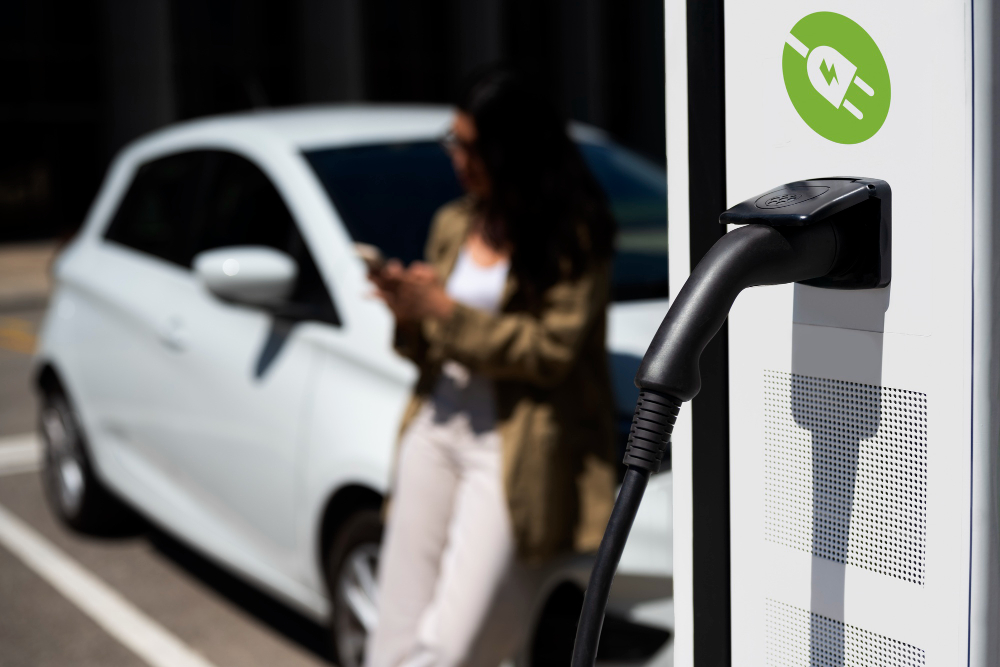Electric vehicles (EVs) have emerged as a transformative force in the automotive industry, heralding a new era of sustainable transportation. Here are ten compelling reasons why electric vehicles are poised to shape the future of mobility:
- Environmental Sustainability: Unlike traditional internal combustion engine vehicles, electric cars produce zero tailpipe emissions, reducing air pollution and mitigating the impact of climate change. By transitioning to EVs, we can significantly decrease our carbon footprint and create cleaner, healthier communities.
- Cost Savings: While the initial purchase price of electric vehicles may be higher than conventional cars, EV owners enjoy substantial long-term savings. With lower fuel costs and reduced maintenance expenses (due to fewer moving parts), electric vehicles offer a compelling economic proposition over their lifetime.
- Energy Efficiency: Electric motors are inherently more efficient than combustion engines, converting a higher percentage of energy from the battery into propulsion. This efficiency translates to better mileage and improved energy utilization, maximizing the driving range of electric vehicles.
- Technological Innovation: The rapid advancement of battery technology has unlocked new possibilities for electric vehicles. Lithium-ion batteries are becoming more affordable, compact, and energy-dense, enabling longer ranges and faster charging times. Moreover, ongoing research into solid-state batteries and other next-generation technologies promises even greater breakthroughs in the future.
- Driving Performance: Electric cars deliver instant torque and smooth acceleration, providing a dynamic driving experience that rivals or surpasses traditional combustion vehicles. With electric motors powering each wheel independently, EVs offer superior traction control and handling, enhancing both safety and performance on the road.
- Energy Independence: By reducing our reliance on fossil fuels, electric vehicles contribute to greater energy independence and security. With renewable energy sources such as solar and wind power increasingly powering the electric grid, EVs offer a sustainable alternative to petroleum-based transportation.
- Quiet Operation: Electric vehicles operate nearly silently, eliminating noise pollution and enhancing the overall comfort of drivers and passengers. This quietness is particularly noticeable in urban environments, where the hum of combustion engines is replaced by the gentle whirring of electric motors.
- Flexible Charging Options: EV owners have the flexibility to charge their vehicles at home, work, or public charging stations. With the proliferation of charging infrastructure, including fast-charging networks along major highways, electric cars offer unparalleled convenience for long-distance travel.
- Reduced Maintenance: Electric vehicles have fewer moving parts than traditional cars, resulting in lower maintenance requirements and reduced wear and tear. With no oil changes, spark plugs, or transmission fluid to worry about, EV owners can enjoy hassle-free ownership and fewer visits to the mechanic.
- Global Adoption: The global shift towards electric mobility is accelerating, driven by government incentives, environmental regulations, and consumer demand. As more automakers invest in electric vehicle production and expand their EV offerings, the transition to electric transportation is becoming increasingly inevitable.
In conclusion, electric vehicles represent a pivotal advancement in transportation technology, offering numerous advantages in terms of environmental sustainability, cost savings, performance, and convenience. As the automotive industry continues to embrace electrification, electric vehicles are poised to become the dominant form of transportation in the 21st century.

